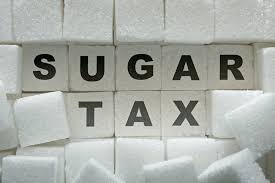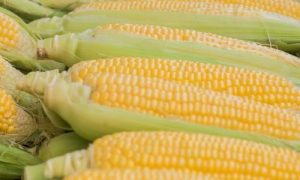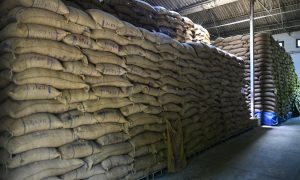South African sugar industry unveils bold diversification plans amid crippling sugar tax crisis

The South African Sugar Association (SASA) announced plans for product diversification as part of the Sugarcane Value Chain Masterplan 2030 to ensure the survival of 25,000 cane farmers. Initiatives include bioethanol petrol, sustainable aviation fuel, and electricity generation, addressing challenges like the sugar tax. These projects aim to create new jobs, reduce environmental impact, and strengthen the sugar industry’s future.
The South African sugar industry has announced ambitious plans for product diversification, including plans for bioethanol petrol, sustainable aviation fuel, and electricity generation, in a bid to counter the challenges such as the sugar tax.
This was announced by the South African Sugar Association (SASA) on Friday as part of the second phase of the Sugarcane Value Chain Masterplan 2030 to ensure the survival of 25 000 cane farmers nationally.
Brian Tait, a consultant for SASA, said that product diversification was necessary, adding that sugarcane has many uses and product diversification will ensure the survival of the industry.
“Extracting juice from the sugarcane gives the ability to produce bioethanol. Ethanol is a platform chemical for downstream products, such as sustainable aviation fuel, bio-polyethylene,” Tait said.
“It’s a long-term project where the infrastructure would cost over R2 billion, but it would create over 125 million litres of petrol, which would be more environmentally friendly and affordable. It would also create 21 000 new jobs through season extension and new cane.”
Tait said that there was also potential for sustainable aviation fuel (SAF).
“The potential is already there with the existing sugar industry, with the current industry being able to produce 110 million litres per annum of SAF. And with expansion, the potential is there to produce 375 million litres per annum,” he said.
“We have already started conversations with the government, such as the Department of Agriculture, and the Department of Trade and Industry and Competition. We have also started conversations with the private sector like Petroleum Oil and Gas Corporation of South Africa (PetroSA), Sasol, and Engen Petroleum.”
Tait added that the South African sugar industry can contribute approximately 700MW of electricity capacity to the national grid through cogeneration projects.
“Sugarcane cogen is the only technology with a positive economic benefit. There are potentially 26 500 new jobs to be created through cogeneration.”
SASA CEO Sifiso Mhlaba said the sugar industry operated in the deeply rural and job-starved cane growing and milling regions of KwaZulu-Natal and Mpumalanga with more than 25 000 sugarcane farmers.
“Central to the rural economies of KwaZulu-Natal and Mpumalanga, the industry’s sugarcane growing and milling activities are responsible for the livelihoods of at least one million people. The industry creates 65 000 jobs directly and 270 000 jobs indirectly.”
“Prior to [the Master Plan’s] installation, the industry faced an existential crisis emanating from serious challenges such as the erosion of the local market, sugar imports, insufficient tariff, the sugar tax, and others.”
Mhlaba added that the sugar tax, in particular, has had a devastating impact on the industry.
“The ramifications include the substantial revenue loss (to the tune of billions of rand), thousands of job losses, and the permanent closure of two mills in KwaZulu-Natal. The Master Plan was put in place in a phased approach to ensure the sustainability of the sugar industry. The deleterious sugar tax remains the antithesis of the all-important Sugarcane Value Chain Master Plan to 2030 as it works against the very objectives of the Master Plan.”
The “sugar tax“ – Health Promotion Levy (HPL) on sugary beverages – was introduced in support of the Department of Health’s deliverables to decrease diabetes, obesity and other related diseases in South Africa.
“We are calling for the extension of the two-year sugar tax moratorium to enable product diversification – the moratorium must be extended to 2030, in keeping with the lifespan of the Master Plan,” Mhlaba said.
“So far, identified product diversification opportunities include sustainable aviation fuel, polylactic acid, bioethanol for fuel blending, and bio-polyethylene.”
Mhlaba added that the success of these initiatives was dependent on a regulatory framework that was enabling and similar to successful strategies in India and Brazil.
“It is important to note that most product diversification opportunities are still at scoping and prefeasibility stages,” he said.
To read more about Sugar Industry continue reading Agriinsite.com
Source : MSN














